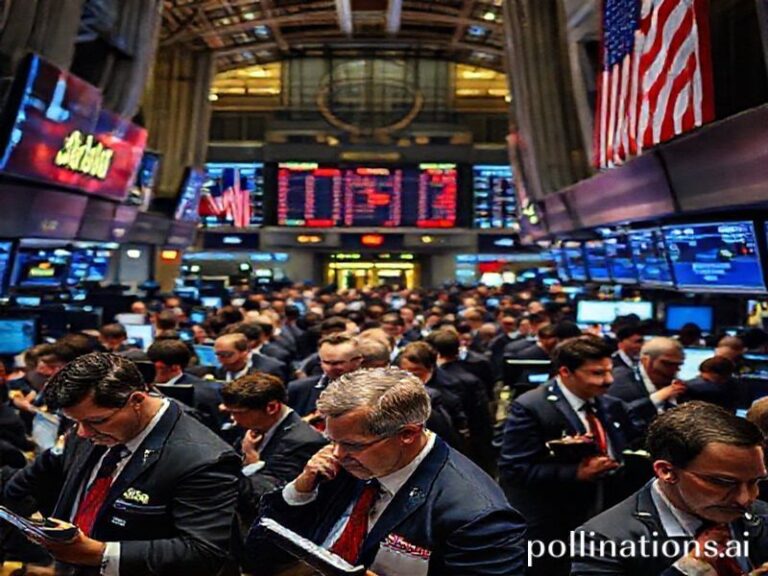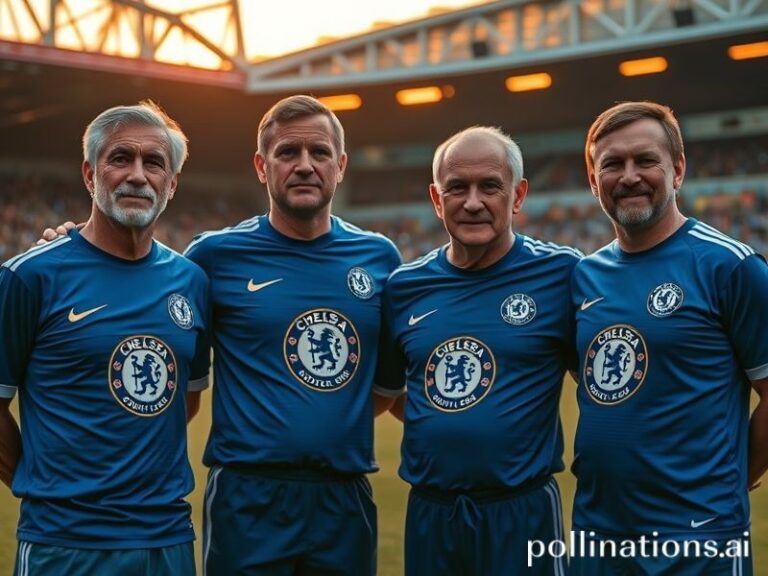From Wales to the World: How Amy Dowden Turned Cancer into a Global Dance of Dark Resilience
The Curious Case of Amy Dowden: How One Welsh Dancer Became a Global Metaphor for Resilience in the Age of Spectacle
By Dave’s Locker Foreign Desk
If you’ve never heard of Amy Dowden, congratulations—you’ve successfully dodged the algorithmic blizzard that is British light-entertainment news. Yet even in the far-flung corners of the planet where Strictly Come Dancing is as foreign as a civil political debate, Ms. Dowden has quietly become an unlikely Rorschach test for 21st-century coping mechanisms.
For the uninitiated: Dowden is a professional ballroom dancer from Caerphilly, Wales, whose primary offense appears to be developing stage-three breast cancer at the indecently optimistic age of 33. That diagnosis, delivered last May, detonated across the UK’s celebrity-industrial complex with the force of a royal divorce. Tabloids treated the announcement like an unexpected bonus war in a mineral-rich country—equal parts sympathy, clickbait, and thinly veiled panic that the autumn sequin quota might be imperiled.
But the story didn’t stay in Britain’s soggy corner for long. Within 48 hours, #AmyDowden was trending in 17 languages, from Portuguese fandom accounts posting glitter GIFs to Japanese oncology forums dissecting her treatment plan with the same fervor normally reserved for anime plot holes. Somewhere in Lagos, a Nollywood producer allegedly pitched “Strictly Oncologist: Chemo Cha-Cha,” while a Silicon Valley start-up floated an AI sidekick trained on her Instagram stories to “optimize patient positivity metrics.” In the global attention economy, even malignant cells can be monetized—just add a branded hashtag and watch the engagement metastasize.
Dowden responded by doing what any sensible person trapped inside a reality-TV panopticon would do: weaponized the gaze. Chemotherapy sessions became TikTok dance tutorials; a bald head became a billboard for NHS blood-donor drives. Each post was accompanied by captions calibrated to British self-deprecation, a tone so dry it could desalinate seawater. The world lapped it up, hungry for a narrative arc tidier than the geopolitical ones on offer. After all, compared with the grinding attrition of climate summits or the slow-motion TikTokification of global conflict, a dancer trading her spray tan for a PICC line provides a refreshingly finite storyline: sickness, struggle, sequinned redemption.
International broadcasters parachuted in human-interest producers the way they once dispatched war correspondents—except this time the terrain was a Welsh leisure centre, and the only incoming fire came from paparazzi flashbulbs. Deutsche Welle ran a segment titled “Chemo and the Cha-Cha-Cha: Europe’s New Social Contract,” while Al Jazeera English framed Dowden’s journey as a parable of “public healthcare versus performative wellness,” inadvertently sparking a Twitter duel between NHS nurses and Californian biohackers over the merits of turmeric lattes.
What makes Dowden globally resonant isn’t the cancer—sadly, that particular club admits 20 million new members annually—but the collision between private agony and public choreography. We demand our protagonists suffer photogenically, preferably on a schedule compatible with prime-time advertising slots. Dowden, to her credit, plays along without fully surrendering. When a morning-show host asked how she “stays so brave,” she deadpanned, “Well, the alternative is dying, and I’ve got a paso doble to finish.” Somewhere, a media-studies PhD student is already citing that line as evidence of late-capitalist necropolitics.
Meanwhile, the ripple effects keep spreading. In India, a Mumbai hospital reports a 40 percent spike in breast-screening appointments among women under 40, a phenomenon oncologists are calling “the Dowden dividend.” In Brazil, samba schools have begun dedicating carnival wings to “dança contra o câncer,” complete with feathered IV poles. Even the World Health Organization—an outfit usually allergic to celebrity—issued a statement praising “grass-roots health literacy,” bureaucratic speak for “we have no budget, but hashtags are free.”
The cynical read, of course, is that we’ve merely upgraded the medieval morality play for the streaming era: suffer virtuously, inspire shareholders, and try not to croak before the finale. Yet buried beneath the merch drops and motivational memes is something stubbornly human—a woman learning the choreography of mortality while the planet practices its own death spiral. If she occasionally uses the spotlight to remind viewers that the NHS is criminally underfunded, or that cancer doesn’t care how many followers you have, well, that’s more subversion than most of us manage between Zoom calls.
Conclusion: In a world addicted to spectacle, Amy Dowden pirouettes on the fault line between authenticity and performance, daring us to spot the difference. Whether she emerges cancer-free or merely content with having weaponized her illness better than most nations weaponize trade policy, her story is already bigger than ballroom. It’s a mirror reflecting our desperate need for tidy narratives in an age when every other headline feels terminal. And if the mirror happens to be studded with rhinestones—well, that’s just globalization serving up its usual glittering absurdity.







